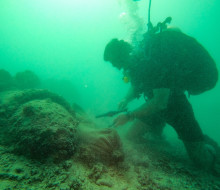
Second World War-era bombs in Vanuatu made safe by Navy divers
26 June 2024
Unfortunately you are viewing this website on an outdated browser which does not support the necessary features for us to provide an adequate experience. Please switch to a modern browser such as latest version of Google Chrome, Mozilla Firefox, Apple Safari or Microsoft Edge.
Ngā mihi nui
Deployable virtual reality is close to bolstering the training of Royal New Zealand Navy (RNZN) personnel, thanks to the ingenuity of two of its civilian members.
Navy Modelling and Simulation team members Karl Vetter and Kevin Heveldt were the winners of the New Zealand Defence Force (NZDF) Innovation of the Year Award, one of the honours awarded as part of the 2023 NZDF Person of the Year Awards.
The pair have long recognised the need for sailors to receive realistic and real-life scenario-based training in order for the RNZN to be combat capable. Their aim is to move training into the digital world, reducing personnel resources, and allowing for flexibility and personalisation, while also improving safety and reducing the risk of accidents.
In partnership with StaplesVR, the team developed virtual reality training software to provide simulation training for radiation hazard training, gas turbine water wash, and ship induction safety officer training.
Mr Heveldt says the drivers for the team were the desire to make people safer and more work-ready, using technology they could access anytime, anywhere.
The training programmes address specific “hurt points” or areas for improvement in RNZN training.
Being safe around radiation hazard areas on ships, understanding the protocols and processes whilst staying safe when they visit or post to our ships and bases, or qualifying our engineers in a high-risk low-frequency maintenance task - this tech is perfect to experience, train, and qualify
He said users both young and old have loved the technology.
“Change is hard but our people recognise the potential of this kind of tech, and it hasn’t been a hard sell.
“In fact, the enthusiasm is such that there are two-to-four areas within Navy that are starting to build on what we have done, to develop other VR-based solutions.
“We have had interest from across the NZDF on how we are engaging, and momentum is growing through the organisation.”
He said the team is only weeks always from giving the modules to people on courses.
“The follow-up next year is deploying headset on ships. This is taking learning to the learners, and qualifications to the candidates, not the other way around.”
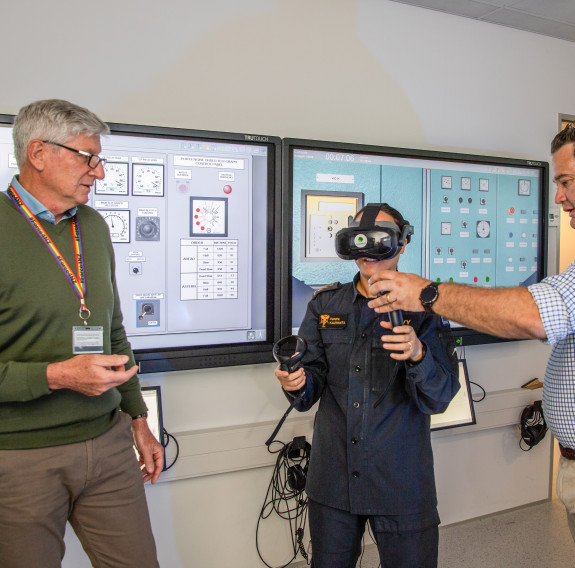
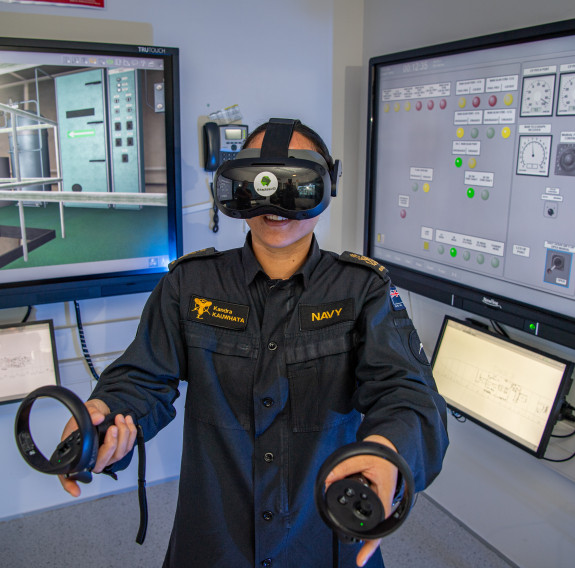
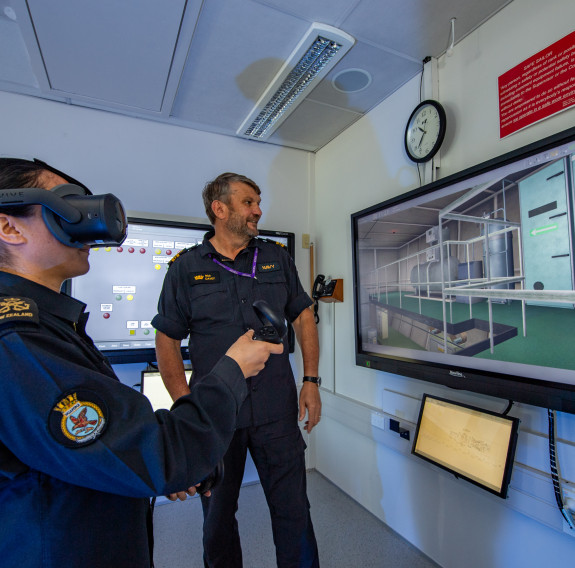
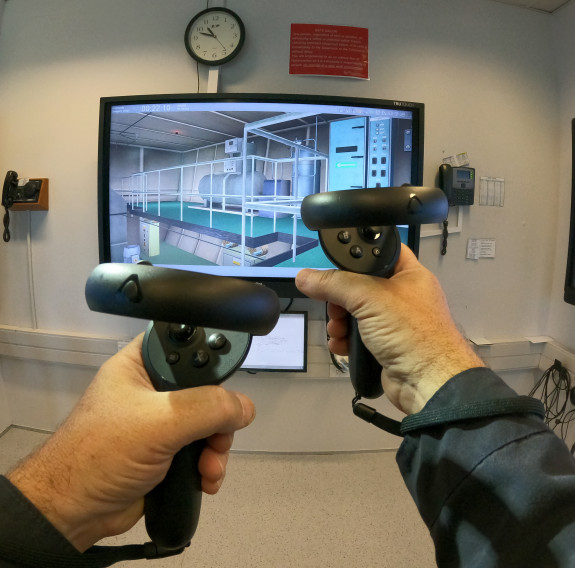
The technology no longer requires headsets tethered to cables.
“The equipment comes in small cases, and is easily transported. Updates can be made over the internet.”
Mr Vetter said virtual reality training overcomes some issues that can arise in classroom and on-the-job training.
“Sometimes bad habits of the instructor can be passed onto the learner,” he said.
“This is either through the instructor not fully understanding the topic they are teaching, or because they are applying shortcuts without fully disclosing why.
“These habits are then used, and over time passed onto other people, thus leading to a degradation of knowledge.”
Virtual reality has no variance in teaching style, Mr Vetter said.
“It is always the same, as per the book, in an exacting manner. You must always do the correct task in the correct order, as the system is designed to not move on to the next step or task until the correct steps are completed.”
He said the big plus is the training can happen anywhere.
“This means that the speed of learning can dramatically increase as the learner will learn as they use the trainer, as opposed to the pace which is dictated by availability of real-world resources.”
The team is not just restricted to virtual reality. In progress are mixed reality solutions, where a real-world environment merges with a computer-generated one.
“These are exciting as it will mean that digital models can be displayed to explain theoretical concepts or to practise operating without the real equipment or aircraft,” said Mr Heveldt.
“This will be Pokemon-Go for the military!”